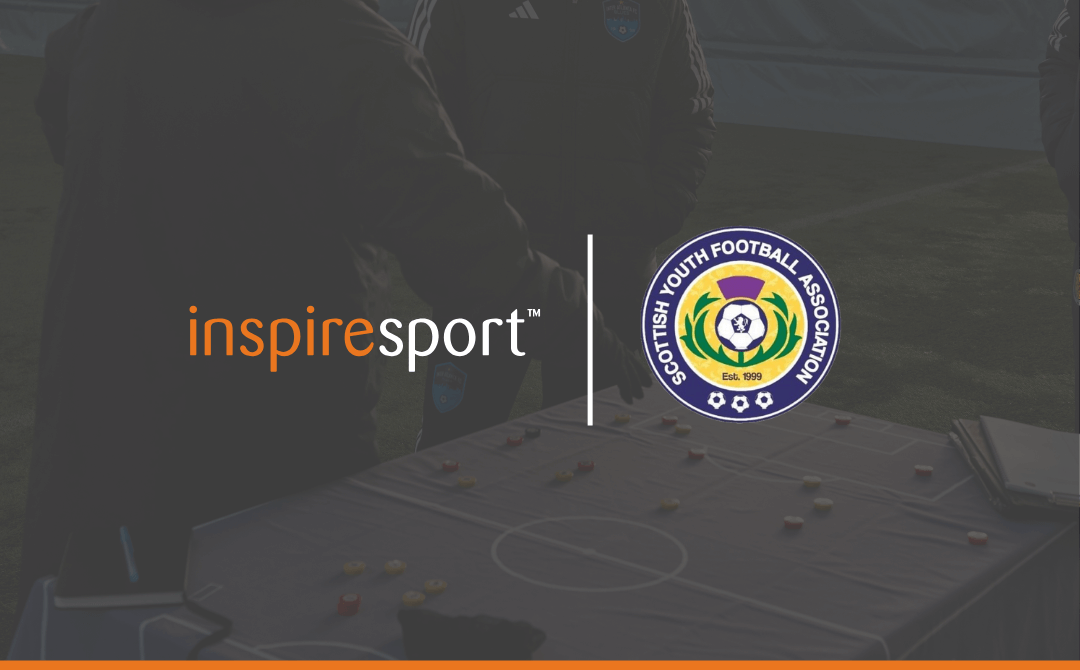
Anyone who plays a sport or does a challenging physical activity regularly knows that one of the first things you notice when you don’t train for a while is the mental sluggishness that sets in, often accompanied with mood shifts and a general dip in your state of mind.
The fact is that a week or two off, whether through injury, travel or work commitments has a negative effect not only on your physical well-being but also on your focus, concentration, and mental health.
As Suzzanne Laidlaw from ActionCOACH explains: “The impact that exercise has on brain performance has been recognised for a long time, and many successful business owners and entrepreneurs would agree that it’s important to keep themselves physically fit in order to maintain optimum academic performance.
Interestingly enough, I was watching a TED talk recently by Wendy Suzuki, titled ‘The brain changing benefits of exercise’, and neuroscience experts can confirm that there is a direct link between exercise and brain function. Some of the proven benefits of exercise for the brain are that it:
• Boosts mood
• Improves memory function
• Protects the brain against diseases such as Alzheimer’s.”
So, if missing out on a training session or match diminishes your mental performance, what exactly can regular exercise do to boost it? And what part can sports and fitness training play in improving, for example, academic performance at school?
Inspiresport always maintained that our sports development tours deliver a range of benefits besides just physical fitness. As specialists in sports development tours across the globe, we know that our tours give students a chance to socialise, learn and develop as people.
In this blog, we set out to look at the links between sporting pursuits and academic success.
The links between sport and increased academic performance
Sport holds great value in the current educational curriculum for several reasons. Not only does physical exercise improve health and well-being, and boosts understanding of the role this plays in everyday life, studies have also suggested that exercise and competitive sport can also improve overall performance in the classroom.
Hania, a writer representing MyDeal.com.au (an online retailer offering sports equipment and outdoor play equipment), says: “According to the Institute of Medicine, kids who are more active can better focus their attention, have stronger working memories and demonstrate better problem-solving skills than less active children. Outside of school, some easy ways to encourage your children to get active include getting a trampoline or other outdoor play options. This means your little one can stay active while having fun, all while boosting their cognitive abilities.”
This information has proved useful to educational establishments in promoting the participation and significance of sport in schools, but as described by the study conducted by Sport England, there are a variety of factors that critics suggest do not provide a solid link between sport and education improvements. This insight highlights that moderating factors and experiment groups were not definitive and the level of physical exertion was not sufficient to compare in the many tests. However, in numerous examples as set out in the Education and lifelong learning: summary by Sport England1, many programmes did see some cognitive improvement, even on a small scale.
This approach will also work for the adult mindset, Peter Horsfield mentions some great tips in his blog including mindset, nutrition, support and exercise tips. Exercise naturally results in keeping the body leaner and more efficient. This can elevate concentration and focus levels in a learning environment.
In addition to this, Entertainer James Bustar adds that taking up alternative physical activity can aid skills that will help educational performance. “In an Oxford University study published in Nature Neuroscience, participants who practiced a daily juggling routine were shown to gain a 5% increase in cerebral ‘whit e matter’ as seen on an MRI. That reinforced the findings of previous studies, which showed similar boosts in grey matter. The areas of the brain impacted by juggling include those dedicated to spatial calculation and awareness — in other words, the better you are at juggling, the better you will be at hand-eye coordination. In turn, hand-eye coordination has flow-on effects to social communication skills, reading, writing, and mathematics, according to research from Indiana University and the University of Leeds.”
Some might conclude that in fact, although studies have produced inconsistent and often non-comparable results (Etnier et al; Sallis et al; Shephard; Marsh and Kleitman)1, that in fact, broader lessons are being learnt from playing sports such as how to socially interact with others and the general camaraderie from team play. These simple yet necessary steps for children and young adults can help to improve skills both inside and outside of the classroom to give them a well-rounded education in life.
How sport can improve mental health
With mental health issues in young people soaring, we look at how sport and physical fitness can keep mental health issues in check by providing focus, fitness, and opportunities to socialise. Each of these areas can help people of any age achieve greater performance in life skills and are crucial in younger years to boost academic achievement.
Exercise is proven to help the body and mind in many ways, and there have been significant investment by the government’s Sporting Future initiative and Sport England’s strategy Towards an Active Nation2. This investment doesn’t just look at getting people involved in competitive sport; it focuses on encouraging everyone to take up new hobbies to improve health and well-being.
Jill Healy-Quintard (BA Dip.Ed, Cert 4 Fitness, Dip. Stott Pilates, Dip Yoga Therapies, Cert. Mental 1st Aid) from Body and Balance runs her own classes and workshops for the general public, teens and children in schools. She says: “all my programs are about increasing productivity, focus and balance in life. My high school and general public classes consist of a combination of Focus, Stretch, Strength, Cardio, Core and Relaxation/Meditation. I also train the teachers in this program, as research has proven that a Mind/Body and Balanced exercise program will not only create a fit body but also a fit mind.”
She advises: ” Lack of movement means that oxygen is not being circulated throughout the body or to the bran which causes depression, anxiety and lack or positivity. Once a person begins to move and especially to music the hormone serotonin is released and in as little as 10 minutes a feeling of depression or lack of energy begins to lift.”
Stephanie McCurdy, Managing Director of StephanieMcCurdy.com.au, says: “I’m a great believer in sport and exercise improving mental health. Physical activity has been scientifically proven to improve serotonin significantly which in turn increases your overall mood. So if someone feeling a bit low, depressed or anxious, getting the heart pumping with some exercise or sport has a powerful benefit. Sport and exercise also releases endorphins in the body which triggers a positive feeling, similar to that of morphine, with many runners and athletes experiencing euphoric feelings of runners high!
“Another benefit of sport and exercise is if the participant is involved in a team they also feel part of something bigger which increases their feelings of belonging, friendship and camaraderie. Sport also increases mental focus and the ability to learn new skills which in turn boosts confidence and belief in oneself.”
Shannon Bond, Personal Trainer (PT) at The Sports Super Centre Gold Coast, adds: “Exercise has been know to help increase mental focus and discipline, and this can carry over to aiding academic performance. In addition, sport can improve mental health by relieving anxiety and stress, increasing the hormones that makes one feel good and also can be a gateway to new friendships and relationships which are also important to improving mental health.”
Additionally, Justine Whitchurch, Founder of The Life Factory states that joining a gym and finding a personal trainer changed the way she challenged life as a whole. – “There is a significant correlation between good physical health and strong mental health. Justine adds that “some of the immediately tangible benefits of exercise include, reduction of stress, decreases in blood pressure and stabilisation of sleep cycles. Not to mention it is an immediate psychological distraction. Some of the less spoken about benefits of exercise in recovery include, having self-belief and enforcing structure and routine.”
There are several ways that sport and exercise can improve mental health including:
Improves a child’s mood and outlook
Studies conducted by the Mental Health Foundation3 have showcased a link between increased activity levels and improved mood compared to levels of inactivity. These findings help to solidify the importance and need to undertake some type of physical exertion to combat a host of mental health issues in modern lifestyles. This improvement in mood contributes to a healthy balance in the mind, and can subsequently assist in tackling problems more calmly and logically.
Michael Henson from Cardiff Sports Nutrition says: “Hundreds of studies have shown that regular exercise is a sure-fire way to not only control depression but even potentially to prevent it in the first place. Furthermore, training has very little side effects compared to some medication, such as anti-depressants. Not only would exercise help you mentally immediately by releasing endorphins (the feel-good chemical naturally produced in your body) but according to Alzheimers.org.uk dementia and other cognitive diseases can be reduced by up to 30% if somebody follows a regular fitness programme.”
John J. Ratey, MD is an associate clinical professor of psychiatry at Harvard Medical School and he works with WW formerly Weight Watchers) He says: “More brain cells are being used when you exercise than during any other kind of activity. Brain activity (including the release of feel-good hormones, such as dopamine, serotonin, and norepinephrine), can mean a better mood in the short term. However, in the long term, you’ll also have a stronger mind and a more efficient, healthier brain. Because exercise helps produce GABA (a chemical with calming properties) in a brain area called the hippocampus, you’re also better equipped to fight off stress and feelings of depression.”
Boosts confidence in and out of school
Many people think that increasing physical exercise or playing sports boosts confidence merely on the surface level. Of course, there are attributes of improving fitness levels that can help to make you feel more comfortable in your own skin, and for young people, this can be beneficial due to anxieties and pressures of modern lifestyles and social conformities. But there are also other ways that sport and exercise boost confidence levels and this includes learning and improving abilities such as decision-making, problem-solving and finding the balance in peer-to-peer relationships.
“Being a team sport, football teaches you how to socialise and interact with others such as sometimes having to put the teams needs above your own in certain situations, as well as having to deal with adversity, criticism and praise.” – James Muir, CEO and CO Founder of Treiner.com.au
Matt Antonino, Head of Operations for Digital Eagles, adds: “For young people and children, anxieties and mental health can be attributed to lack of social interaction and less confidence in communicating with others.”
By participating in sports, children can learn how to interact with others to solve problems and in some cases, take charge for the improvement of the team. This skill is transferable in everyday life scenarios and assists children in openly communicating with other peers and adults confidently.
Decreasing stress ready to face the challenges school life brings
Stress is a part of life, but as a young person, this can feel overwhelming and exhausting especially if there is no obvious outlet when they are faced with the pressures of social conformity. Exercise and improved fitness play a significant factor in relieving the thoughts and feelings of stress and anxiety, and when exercise plays a regular part in weekly routines, it can reduce levels to bring a calmer mind and thought-process in daily life.
Paddy Coary of Paddy Coary Pilates has many stories and anecdotes to share “people with mental health issues (specifically depression) have reported that they just feel better after a workout, they feel stronger and more flexible/mobile, that they are in control of their physical well being, a small little win like that for someone going through a tough period in life is a pretty big deal in my opinion”.
Subsequently, “when children and young people are less stressed, they are able to focus better in classroom situations and can use skills such as reasoning and critical thinking more effectively.” – Aodhan MacCathmhaoil, Waster.com.au
By promoting a healthy and well-balanced lifestyle for this age group, it can increase participation levels in school, and build the confidence to question, analyse and debate more fluently.
This is also something that can apply outside of the classroom and into a workplace. Jakub Kliszczak from CrazyCall says: “Recently, at CrazyCall, we’ve conducted a social study during which we’ve asked salespeople what are their main problems and how do they cope with them. Surprisingly or not, one of the most popular solutions to issues such as lack of motivation, stress, and burnout happened to be… exercising! Precisely, it has been chosen as the #1 method of dealing with the lack of motivation, #2 as the best solution to stress and #3 as the remedy for burnout.”
The science behind physical activity and improved cognitive function
Alongside the studies conducted by educational establishments to highlight the links between sport and educational performance, some significant scientific conclusions indicate physical exercise can boost cognitive capacity. As explained by neuroscientist Ben Martynoga, increased fitness can have a profound effect on a range of areas in the body and mind including improving concentrations, boosting memory and slowing cognitive decline4.
Lauren Hannaford, a former elite gymnast turned fitness professional, says: “A frequent contributor to cognitive impairment are lack of sleep, a low mood, stress or anxiety. Regular exercise has been known to help improve not only your mood but helps improve sleep and reduces stress and anxiety which more often than not will have a positive impact and improvement on your academic performance due to having better mental clarity through feeling more energised.”
For children and young adults, boosting concentration and memory can have a significant impact on success levels in the classroom and during examinations. There are have been many experiments with children of school age including a Dutch trail that introduced 20-minute intervals of exercise between lessons, which saw the improvement of selective attention in the children5. Another US study6 looked at the impact of introducing after-school sports classes over the period of a year, and the results concluded that this intervention improved cognitive performance and enriched many areas such as multitasking and memorising information.
There is an area of the brain called the hippocampus that is the home to verbal learning and memory. As highlighted by a study completed at the University of British Columbia7, physical exercise appears to boost the size of this area when undertaking workouts that get the blood pumping such as cardiovascular exercise. Other activities such as resistance training and toning did not have the same results.
“The best thing to do is to get children moving. Structure games, and play that children enjoy doing and that is something that can be consistent and sustainable long term.” – Travis Barrett MS, CSCS, Evolution Athletics
These studies not only indicate the importance and scientific evidence that a link between increased fitness and cognitive function occurs but it also shows that at any age, improving fitness levels helps to increase performance in everything from education and life skills. This research has also been vitally important in long-term health studies, as improved physical fitness can assist in helping people lead fuller and healthier lifestyles.
Dr Elena Touroni of The Chelsea Psychology Clinic also adds: “Experts suggest you can reduce the risk of heart disease, diabetes, osteoporosis and you can lower your cholesterol and blood pressure with good exercise.”
How sport can help you achieve more in the classroom and at play
There is a range of statistics and guidelines that highlight the amount and variety of exercise you should be undertaking each week. These indicators are not just put in place to keep everyone healthier on a physical level; they are set out to improve a host of other lifestyle functions such as well-being and mental health. For children, it is also a great idea to get them into a routine that they enjoy and can easily stick to. This encouragement and progression in extra-curricular sporting activities can have profound effects on both fitness levels and mental health in children of all ages.
As children grow, sport can also assist in improving their success in the classroom, and as mentioned in the sections above, this can equate to improved memory, concentration and confidence in peer-to-peer situations.
“With the significant pressures on children in social circles, sport can boost their self-assurance in group situations and help them overcome hurdles in everyday life.” – Joanna Wells, Taylor Wells
“Interaction and communication is an essential step in the progression and integration for children especially in younger years, and encouraging the participation in sporting activities can help to boost their skill set both in and outside of the classroom.” – Debbie Aurelius, Peppermint Fish
Troy Methorst, former Australian Army Combat Engineer and now Director of Veteran Mentors, says: “Playing sport improves mental health in a few different ways. Firstly, we gain all the health benefits from exercising. Secondly, we get the benefits of belonging to a team. This is great on many levels, though on the surface, we get to develop our team work skills (leadership, communication, co-operation, commitment, trust, etc.) which are all great for our mental health. More importantly, we are more open to sharing our personal stories to people we can relate to; the team. Being part of a team, we have an obvious connection. Pre and post game chats are great for sharing our personal stories about how we have been, and team players are more likely to help other team members out in times of need.”
Candice Lingam-Willgoss, Lecturer in Sport and Fitness at The Open University, adds: “A prime motive young people cite for the involvement in sporting activity relates closely to affiliation, they seek out opportunities that enable them to be with friends and foster new relationships. Research in developmental sport psychology has also found that sport participation can enhance self-esteem, promote pro-social behaviour and help young people develop a sense of loyalty and an understanding of emotional support (Weiss, Smith and Theeboom, 1996). Furthermore, the development of positive peer relationships can act as a protective mechanism and ultimately lead to young people experiencing lower levels of stress and higher self-determined motivation (Ullrich-French and Smith, 2009).”
To put it to the test, all you need to do is start exercising, and we know going on a sports tour with inspiresport will help your child experience a unique adventure with some of the best sports coaches across the UK and Europe. These tours help to boost confidence and develop skills alongside reinforcing cognitive development to give your child the opportunity to truly flourish.
References
1 – https://www.sportengland.org/media/3237/education_and_life_long_learning_-_summary.pdf
2 – https://www.sportengland.org/our-work/mental-health/why-we-invest-in-mental-health/
3 – https://www.mentalhealth.org.uk/publications/how-to-using-exercise
4- https://www.theguardian.com/education/2016/jun/18/how-physical-exercise-makes-your-brain-work-better
5 – https://www.ncbi.nlm.nih.gov/pubmed/26724833
6 – https://www.ncbi.nlm.nih.gov/pubmed/25266425






